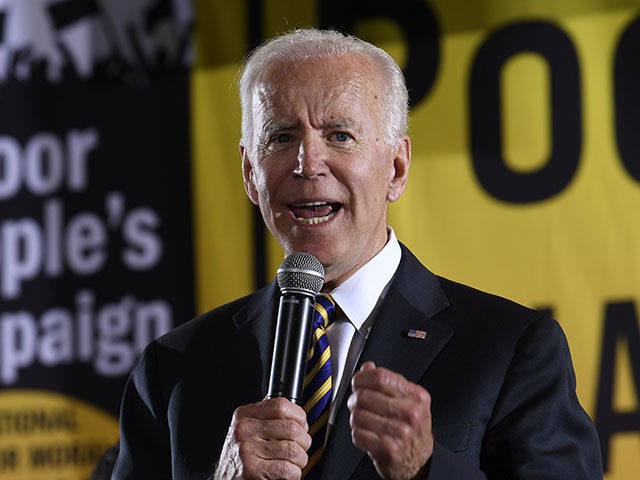Only about 25 percent of Latinos identify with Joe Biden’s progressive identity politics, while more than 60 percent of Latinos favor Donald Trump’s populist, pro-American pitch, according to a September 18 report in the New York Times.
The study asked voters and focus group for their views on “a dog-whistle message lifted from Republican talking points … [about] ‘illegal immigration from places overrun with drugs and criminal gangs’ and called for ‘fully funding the police, so our communities are not threatened by people who refuse to follow our laws,’” the authors wrote in their September 18 op-ed.
The shocked authors reported, “Almost three out of five white respondents judged the message convincing. More surprising, exactly the same percentage of African-Americans agreed, as did an even higher percentage of Latinos.”
The political problem for Biden’s progressive allies is that only about 25 percent of Latinos identify themselves as a progressive-style “people of color” identity group, the authors said. The majority of Latinos “rejected this designation [because] they preferred to see Hispanics as a group integrating into the American mainstream, one not overly bound by racial constraints but instead able to get ahead through hard work.”
The authors urged Biden to combine a unifying pitch with an economic message, saying:
Democrats should call for Americans to unite against the strategic racism of powerful elites who stoke division and then run the country for their own benefit. This is not to deny the reality of pervasive societal racism. But it does direct attention away from whites in general and toward the powerful elites who benefit from divide-and-conquer politics.
The researchers are progressives, so they repeatedly choose to interpret Trump’s national-unity populism as racially divisive.
In reality, Trump’s stop-and-go populism and his zig-zag “pro-American immigration” policies are applauded by many Americans as non-racial solidarity against the tightening alliance of Wall Street’s cheap-labor policies and wealthy progressives’ divide-and-rule, racially-divisive insistence on chaotic diversity and mass migration.
For example, numerous polls show that Latinos say they favor immigration but they strongly prefer border security, oppose welfare for migrants and want employers to hire Americans before importing workers. In April, Breitbart News reported:
A Washington Post poll shows that Hispanics are the strongest advocates for a near-total halt to legal immigration during the coronavirus epidemic and economic crash.
Sixty-nine percent of Hispanics said yes when they were asked, “Would you support … temporarily blocking nearly all immigration into the United States during the coronavirus outbreak?” Just 30 percent of Hispanics oppose the shutdown.
In contrast, 67 percent of whites backed the shutdown, partly because 45 percent of “liberals” opposed the policy.
In recent days, Biden has been trying to present a populist, unifying image. But his donors reveal a different story, according to a September 18 report in Breitbart News:
Biden’s campaign has raised over $1 million from donors living on Park Avenue, according to Federal Election Commission (FEC) filings. That is more than eight times the $127,000 raised by the Trump campaign from the same area.
It is also nearly three times the amount his campaign has raised in Scranton and the surrounding area. In the Scranton, Wilkes-Barre, Hazelton area, Biden has raised $355,706, according to OpenSecrets.org.
There, Trump is running much closer in the fundraising race, with $336,657. That means Donald Trump’s campaign has raised more money from the Scranton area than it has from Park Ave.
In contrast, Trump’s mix of populism and establishment cronyism helped to raise household income by roughly seven percent in 2019, according to the data presented by the Census Bureau.
2019 was such a good year for wage earners that per-household income rose by almost 7%, even as wages rose by just a little over 2%.
That won't happen again if businesses and progressives get to import even more workers. https://t.co/gHlh42iUcd— Neil Munro (@NeilMunroDC) September 16, 2020

COMMENTS
Please let us know if you're having issues with commenting.